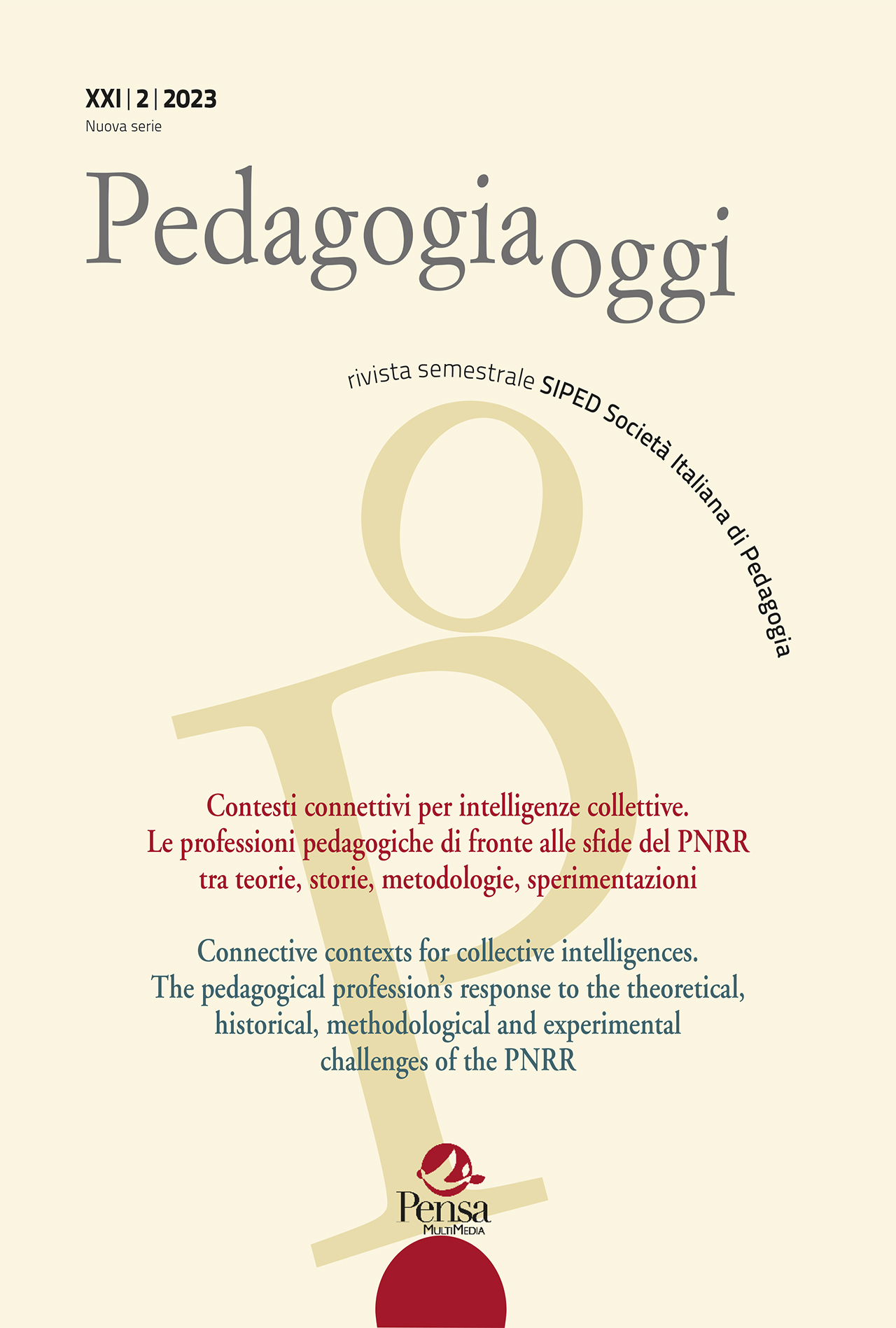Social intelligence, co-participation, quality of life and adult education in E.C. Lindeman’s vision
DOI:
https://doi.org/10.7346/PO-022023-09Keywords:
E.C. Lindeman, adult education, experience, social intelligence, democratic societyAbstract
Eduard C. Lindeman (St. Clair, Michigan 1885 – New York 1953) develops the most relevant ideas of The Meaning of Adult Education (1926) on this concept: “Knowing-behavior, which is intelligence, is social in two direction: it takes others into account and it calls forth more intelligent responses from others” (p. 165). Starting from implications of “social intelligence” for Adult education field (experiential learning, mutual teaching/learning, etc.), this article intends to explore the relationship between individual and collective dimension about the “mature” mentality/behaviors. That is, those behaviors that deal reality in meaningful perspective, making possible conscious actions and assuming that the development of individual takes place together with community, which the individual belongs and participates at the same time. From these reflections, interesting ideas derive for understanding the links between citizenship, democracy and education (of adults) that Lindeman has strengthened on a theoretical level and in practice, providing for learning contexts based on collaboration and sharing knowledge.




